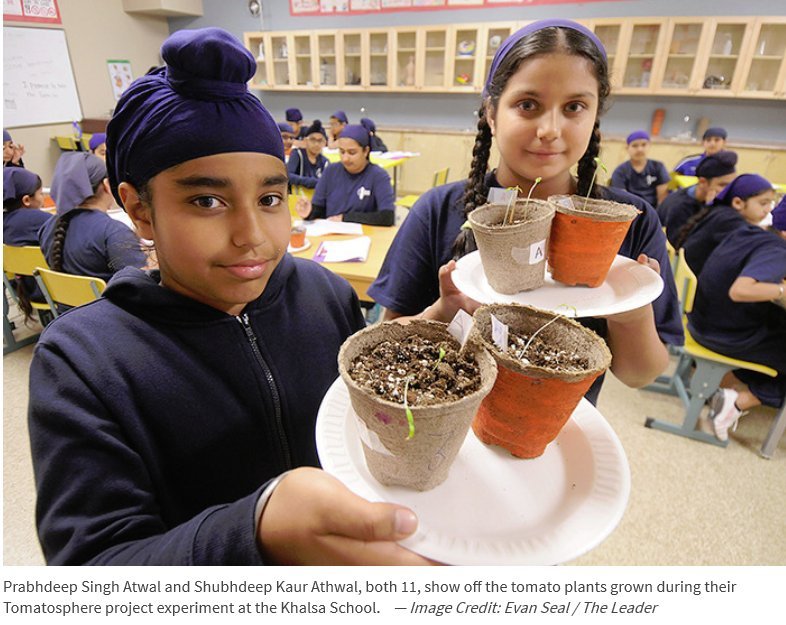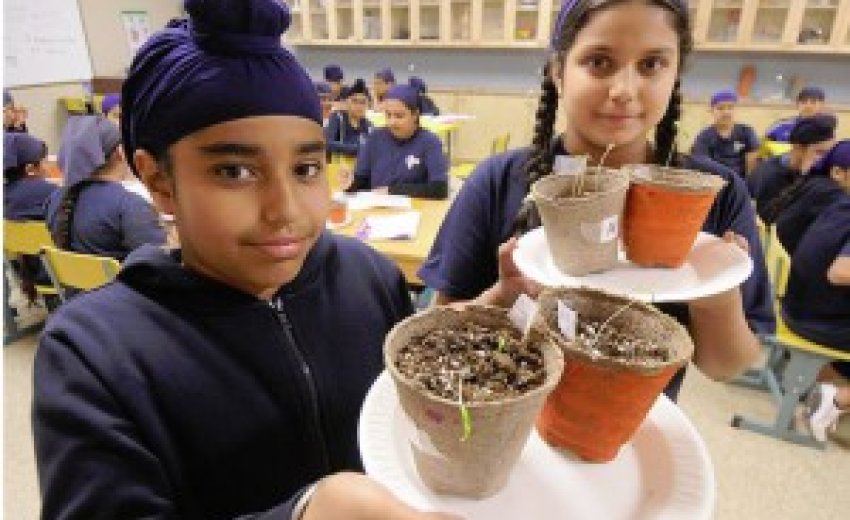
May 13, 2015: Elementary students at Surrey's Khalsa School have launched their study of science into outer space.
Grade 6 science teacher Sunita Jasrotia recently applied to have her students participate in "Tomatosphere," a program designed to help students investigate the effects of space on the growth of food that will inevitably support long-term space travel.
The students were given two sets of tomato seeds, one that has been exposed to a space-like environment, meaning -80 C for at least 22 months, and one set that has been exposed to normal conditions on Earth.
The students then planted each set of seeds in different containers without knowing the origin of the seeds and recorded the rate of germination to see what, if any, effect the space environment had on the germination and growth of the plants.
Tomatoes are an extremely popular plant in space, providing food and oxygen, purifying water through the evaporation from their leaves, and removing carbon dioxide.
This experiment will help scientists decide which types of seeds are best suited for space travel where availability and physical space are often a challenge.
“I heard about the opportunity through a program offered at UBC called Science Fun Challenge and Let’s Talk Science,” said Jasrotia. "So it was part of that teacher collaborative program.”
The students are currently at the stage where they are counting how many seeds from each group have germinated, as well as recording the room temperature.
After 22 days the results will be submitted online and the class will be told which seeds are which. Then in the second stage of the experiment, the students will start to record the size and general health of the plants and submit that data as well.
“We have been watering the seeds every day and recording the growth and temperature,” said Shubhdeep Kaur Athwal. "And I’m hoping that this project is successful and we can help the scientists out because I would like to be an astronaut.”
Classmate Prabhdeep Singh Atwal believes this experiment is significant because with the population of Earth increasing rapidly, humans will need to make plans for future generations which could mean living in space.
“We need to know if we can grow food up there,” he said.
Although Atwal was fascinated by the experiment, he didn’t see space travel in his future.
"My dad has a trucking company. I think I’ll take that over.”
